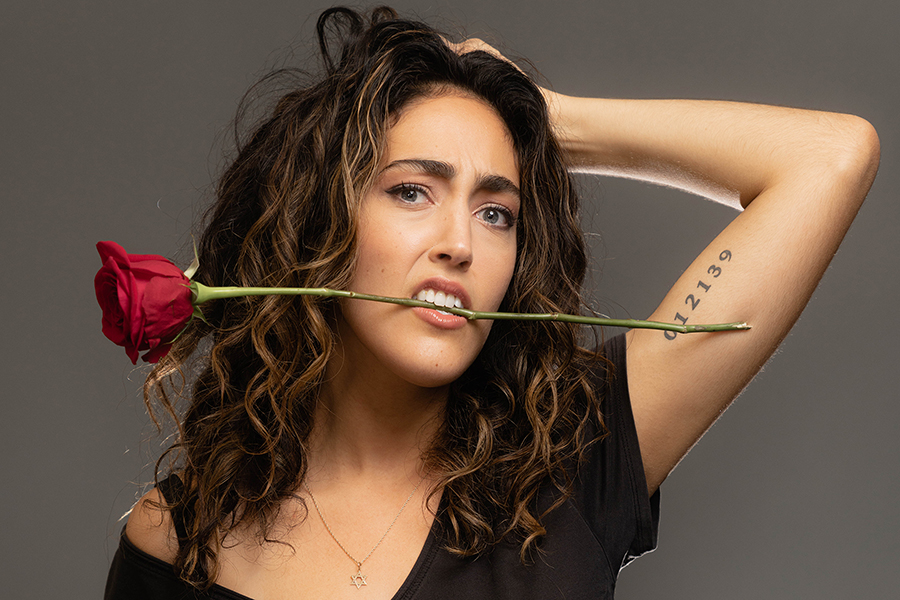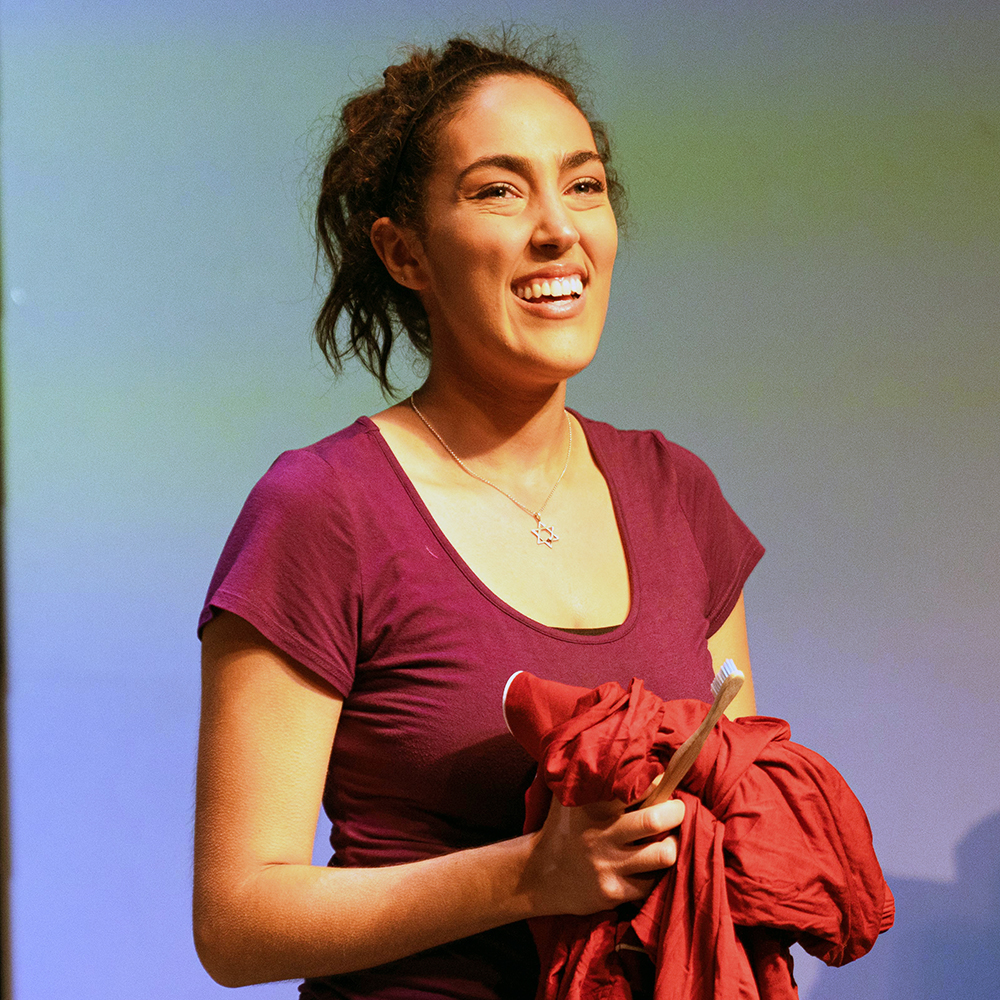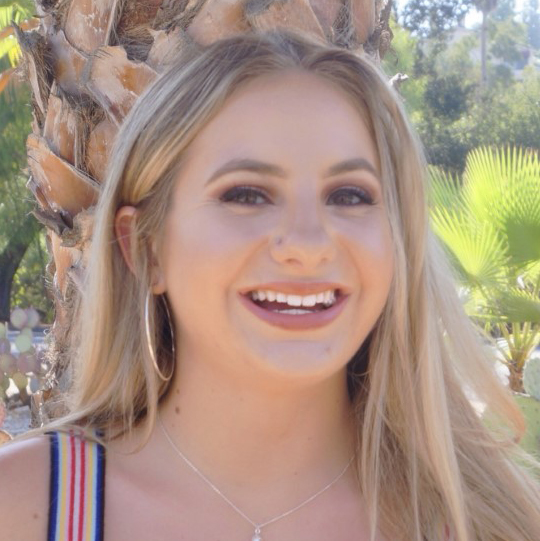
Rachel Kaftan ’21 landed at Loyola Marymount University nearly by accident. After traveling from her hometown of Seattle to Los Angeles to visit family and tour some West Coast universities, Kaftan was on her way to LAX with some time to kill before her flight, when her cousin, an LMU alumni, suggested she stop by LMU.
“The moment I stepped on campus, I saw all the different kinds of creative projects happening in the quad,” Kaftan said. “I saw women rehearsing for like a dance number and I saw another group filming in Sunken Gardens. I was instantly inspired.”

Kaftan always felt drawn to the performing arts. Throughout her childhood, she performed and produced countless plays with her cousin, and became determined to pursue this passion. Starting at LMU, Kaftan felt “bright-eyed and bushy-tailed” as she was thrust into sunny Los Angeles, a stark difference from her hometown in the Pacific Northwest. The proximity to Hollywood energized Kaftan, and fueled her determination to be an actor. While at LMU, she threw herself into theatre arts, performing in many productions and studying abroad in Europe.
However, like so many students, when the pandemic hit in her junior year just before spring break, Kaftan was thrown for a loop. She used the pandemic as an opportunity to pour time into her passion, taking her fate as a performer into her own hands.
“With nothing else to do, I took advantage of my undirected creative energy, and wrote a show about myself and my childhood.” The solo show that emerged is call “Boy Vey,” and it is described as “a coming-of-age dark comedy solo show that tells the story of a young Jewish woman in her sexual prime, as she grapples with the harsh reality of being a third-generation Holocaust survivor. This show is about being boy-crazy but getting cock-blocked by inherited trauma. Constantly.”
Kaftan built a small team, including fellow LMU Theatre Arts alumni Sam Pribyl ’20 as stage manager and current clinical associate professor of theatre arts Dana Resnick, who directs the show. With the efforts of Kaftan and her team, she was able to crowdfund over $30,000 to make her one-woman dream a reality.
“The opportunity I had to learn more about myself, to fully embrace my acting passion as well as my Jewishness, and to put it all together thanks to the resources I discovered in college, was an incredibly valuable experience for me.”
“Boy Vey” was workshopped at Santa Monica Playhouse from January to March 2022, it opened the Piccolo Spoleto Festival at PURE Theatre in Charleston, SC, and it made its NYC debut in the fall of 2022. With 25 public performances to date across the United States, including to a sold-out crowd at LMU in January, Kaftan and Resnick plan to tour “Boy Vey” nationwide at college campuses and Jewish Community Centers in 2023.
The show highlights the intersectional identities and experiences that make the human condition so unique and dynamic. Her identity as a straight Jewish woman with two moms and two dads (her mothers who raised her, plus her donor dad and his partner) has influenced her journey through college, trauma, relationships, sexuality, and heartbreak.
“Initially, my creative drive was borne from generational heartbreak and wanting to scribble down all my angry thoughts,” Kaftan said. “I had known that I wanted to create a project about my family’s Holocaust history, but I didn’t quite know how. Then it kind of clicked for me and I suddenly was connecting my dating experiences to my family’s story in a really interesting way. From there, I started remembering other events from my early dating life, my sexual awakenings as a kid, and how those coincided with my awakenings as a Jewish woman and a descendant of Holocaust survivors.”
And so the first iteration of “Boy Vey” was born. By the time spring break 2020 was over, the script was written, albeit unedited and with much work left to do. It was also already clear that class wouldn’t be resuming in person for the semester, and so Kaftan dove into meetings and building her team. Resnick was one of her professors as well as a director with nearly two decades of experience, and was enthusiastic about joining the show, as was Pribyl, a friend and senior theatre arts major at the time. After rehearsing, fine-tuning, and editing, the show was ready to premiere at the Santa Monica Playhouse in early 2022.
One show in Charleston, an area with a large, elderly Jewish population, was especially meaningful to Kaftan. “There were children of Holocaust survivors coming up to me after the show and telling me about their similar experiences, which kind of surprised me because in my mind, the subject matter felt geared toward a younger audience. It made me realize how these issues and traumas span generations. This really reframed the impact of the work in a new way.”
Kaftan’s time at LMU was pivotal in helping her pull off this production. She is especially grateful for the LMU Theatre Arts community, many members of which served as supporters and mentors throughout her process. Beyond the hard skills she developed like writing, theater arts, and performing, LMU also helped Kaftan get in touch with her Jewish roots and learn more about her own history and culture as a member of the LMU Hillel community and a Jewish Studies minor.
“The opportunity I had to learn more about myself, to fully embrace my acting passion as well as my Jewishness, and to put it all together thanks to the resources I discovered in college, was an incredibly valuable experience for me.”
*****
To learn more about Boy Vey and upcoming performances, follow @boyveytheplay on Instagram.




